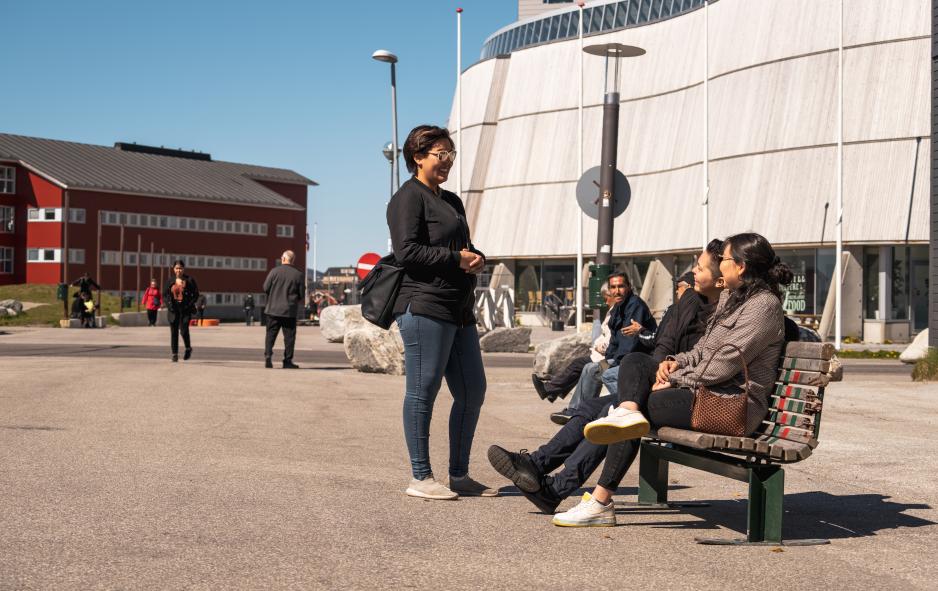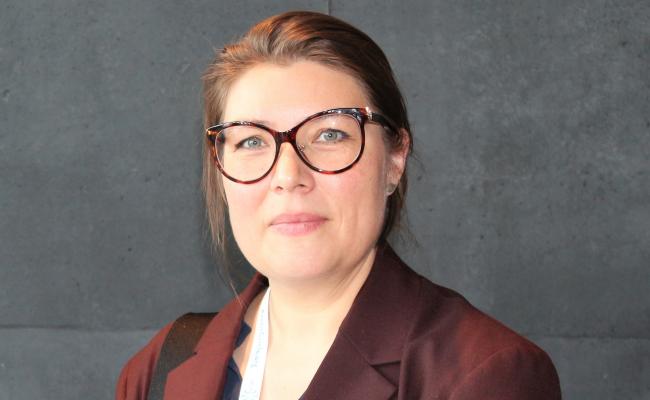The Kingdom of Denmark's Upcoming Arctic Council Chairship: Indigenous and Arctic People at the Top of the Agenda

As the chair of the Arctic Council, the Kingdom of Denmark will further and strengthen the council's human dimension, with a particular focus on strengthening Indigenous participation and including Indigenous knowledge in the cooperation format's work. Photo from Greenland's capital, Nuuk. (Photo: Mads Schmidt Rasmussen/norden.org)
The Kingdom of Denmark takes over the chairship of the Arctic Council next month. "We will work diligently to keep the council vibrant and resilient, first and foremost for the Indigenous Peoples and inhabitants of the Arctic," states the realm, with Greenland at the forefront.
The Kingdom of Denmark – Greenland, the Faroe Islands, and Denmark – will take over the chairship of the Arctic Council on May 12th.
The baton will be handed over by Norway, which has guided the Arctic Council through turbulent times after Russia's warfare against Ukraine.
Now, with Greenland in a leading role, the Kingdom is displaying a great will to take the leading intergovernmental forum for cooperation in the Arctic into the future.
"As chair, we will work diligently to keep the Arctic Council vibrant and resilient, first and foremost for the Indigenous peoples and inhabitants of the Arctic – so that the Arctic remains a region of stability and constructive cooperation," states the incoming chairship.
In an increasingly turbulent world, the task of keeping the region's eight countries gathered for joint efforts will likely be demanding.
At the same time, the Kingdom endeavors with its program to build a foundation for continued work that will serve the interests of all member countries, with a solid anchoring in the 1996 Ottawa Declaration on the council's establishment and its strategic plan 2021-2030.
Most importantly: Arctic indigenous peoples and inhabitants are put at the center.
The Arctic Council
· The Arctic Council is an intergovernmental forum for cooperation between the region's eight countries, indigenous peoples, and other inhabitants on joint Arctic matters, particularly regarding sustainable development and environmental protection.
· The member states are Canada, Denmark, Finland, Iceland, Norway, Russia, Sweden and the US.
· Six Indigenous organizations are permanent participants of the Arctic Council. They have full consultation rights in connection with the council’s negotiations and decisions – as well as the opportunity to participate in all its meetings and activities.
· 13 non-Arctic states and several international and non-governmental organizations have observer status.
Overarching aims
The Kingdom of Denmark's overall ambition is to provide an inclusive chairship and bring the Arctic Council's work closer to the people who live in the region.
The program states that the northerners must have an impact on the activities in the region, particularly regarding how sustainable development is to be understood and advanced.
Indigenous knowledge is also highlighted:
"Recognizing that Indigenous Knowledge and perspectives are essential to understanding and managing changes in the Arctic, strong integration of Indigenous Knowledge alongside scientific insights in the work of the Arctic Council will be a priority."
The incoming chairship also heralds a particular focus on promoting sustainable development in Arctic communities and economic empowerment of Indigenous Peoples.
Five prioritized topics
The Kingdom states that it will continue to support ongoing activities and projects driven by the council's six working groups and the expert group on black carbon and methane.
Furthermore, five thematic prioritizations for the chairship are presented:
- Indigenous peoples and communities of the Arctic
- Sustainable economic development and energy transition solutions
- Oceans
- Climate change in the Arctic
- Biodiversity
These are important national prioritizations within the realm and also correspond with the Council's strategic plan 2021-2030, it is informed.
"The strategic plan will be our compass, guiding the entire Chairship 2025-2027," the incoming chairship says and continues:
"We will build on previous efforts to promote cross-cutting cooperation and joint projects between the subsidiary bodies, thereby enhancing synergies and holistic approaches."
Read the entire program here.
Launched in Nuuk
The chairship program was officially presented in Nuuk on Friday afternoon.
The main speaker was Vivian Motzfeldt (S), Greenland's Naalakkersuisoq (minister) of Foreign Affairs and Research.
The Kingdom's new Arctic ambassador, Kenneth Høegh, also spoke at the event. He is appointed by Denmark's Minister of Foreign Affairs Lars Løkke Rasmussen on the recommendation of Greenland – and comes from the position of Head of the Greenlandic representation in Washington, D.C.
In addition to his ambassadorial role, Høegh will serve as Senior Arctic Official Chair throughout the chairship period.
Sara Olsvig, international chair of the Inuit Circumpolar Council, one of the Council's permanent participants, also took the podium.
Watch the live streaming of the event here:
The transfer of the chairship
· On 12 May 2025, the 14th meeting of the Arctic Council will be held in a virtual format. Delegations from the eight Arctic states, six permanent participant organizations, working groups and expert group and observers have been invited to the meeting.
· The meeting will mark the conclusion of the Norwegian chairship (2023-2025) and the beginning of the Kingdom of Denmark's Chairship (2025-2027).
Backdrop
· After Russia's full-scale invasion of Ukraine, the council's work was temporarily paused in March 2022 by Canada, Finland, Iceland, Denmark, Norway, Sweden and the USA. The council's Russian chairship continued its program with participation from other countries.
· In June 2022, the seven western Arctic countries revitalized some project work within the Arctic Council without Russian participation.
· Norway took over the chairship from Russia in May 2023, and got to work on carving out future solutions for the council.
· In August 2023, all the Arctic countries agreed that the working and expert groups could resume activities based on written procedure.
· From February 2024, meetings in the Council's working groups were gradually resumed digitally. In addition, the Norwegian chairship has organized regular meetings with working groups and permanent participants, as well as bilateral meetings with the other Arctic states throughout these last two years to facilitate and advance internal cooperation.




